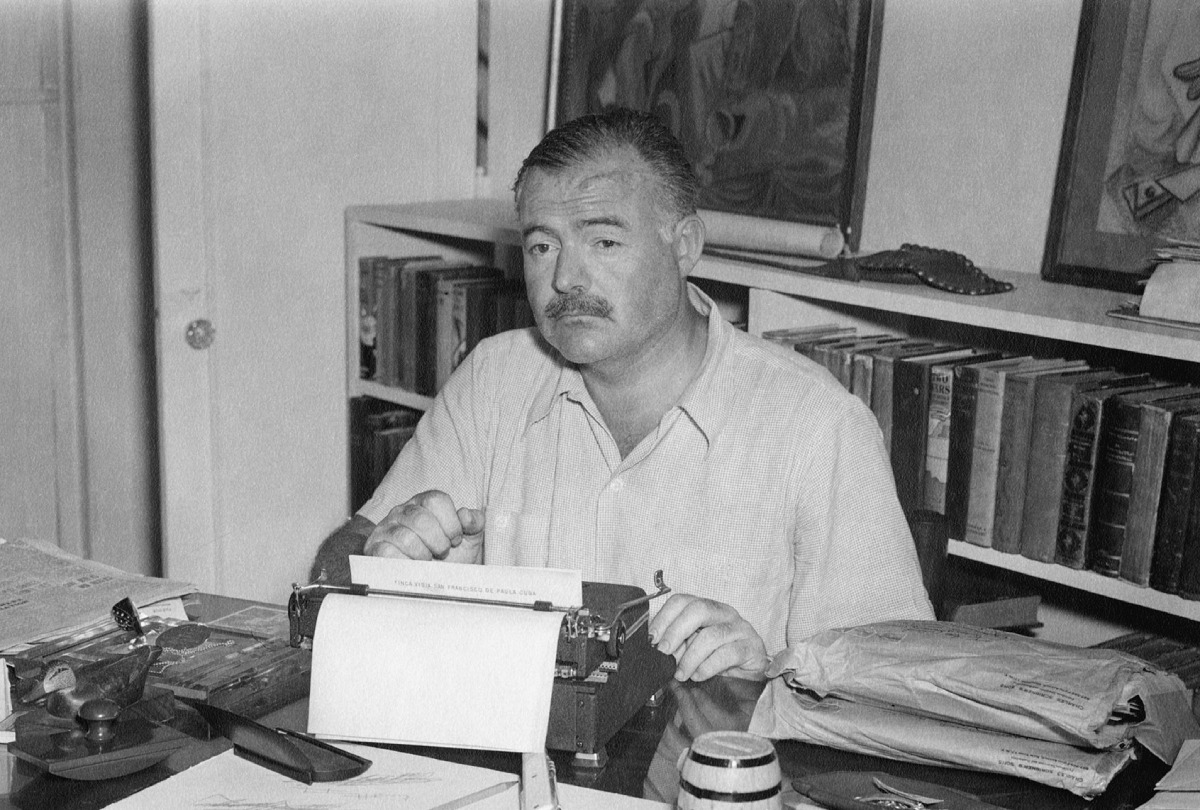Continuing their attempts to chronicle every foundational moment or figure in American history, Ken Burns and Lynn Novick’s exhaustive six-hour documentary, “Hemingway,” traces the historical formation of the titular author. Utilizing Burns’s now routine formal devices – photo pans and zooms, talking heads, Peter Coyote narration – “Hemingway” grafts the author’s life onto his novels in ways that may trouble literary critics who have moved on from biographical criticism but will be captivating for fans of Burns’ particular form of reporting. That Burns and Novick chose this specific moment to chronicle someone who is seemingly the face of the white male literary canon, and whose literary stock has significantly fallen in the past few decades, is an odd choice, especially as numerous BIPOC filmmakers have recently petitioned PBS to stop their dependence on Burns’ particular type of national hagiography. Despite lingering extratextual questions regarding Burns and Novick’s reasons, “Hemingway” is nevertheless an encyclopedic dive into one of America’s most well-known authors, for better or worse.
Unfolding over the course of three, two-hour episodes, Burns and Novick track Hemingway’s childhood through his wartime experience, expatriate excursions with the likes of Gertrude Stein (who really deserves her own six-hour deep dive) and F. Scott Fitzgerald, before settling into a rhythm, chronicling every novel in Hemingway’s relatively small oeuvre – he published just seven in his lifetime – as it relates to his life experiences at the time. With Jeff Daniels giving voice to Hemingway, and a bevy of actresses voicing his four wives, including Keri Russell, Patricia Clarkson, Mary Louise Parker, and Meryl Streep, ‘Hemingway” gives outsize attention to his marriages, reflecting on his writing in the context of who he was married to at the time. Most interesting, perhaps, is his relationship to Martha Gellhorn, voiced by Streep. A fierce writer and journalist in her own right, Hemingway’s relationship to Gellhorn is essentially given an entire episode, as Burns and Novick chronicle their tumultuous relationship in detail, as Hemingway courts her, enjoying her willingness to travel to cover the Spanish Civil War with him. As they married, and Hemingway eventually demanded Gellhorn settle down into a life of domesticity, a life that she actively pushed against, a pattern started to emerge. Despite Hemingway’s attraction and courtship of women outside of the margins of femininity during the period, he nevertheless demanded regressive marriage roles.
Yet the overriding thesis, pushed by such authors as Tobias Wolff, Edna O’Brien, and Tim O’Brien – the common denominator of these authors being their advanced age – as well as literary critics, and, oddly enough, the late John McCain, calls for critical reprisal for an author that has often been reduced to stereotypical portrayals of toxic masculinity. Burns and Novick complicate that image, heavily focusing on Hemingway’s androgyny, within his prose, but also his sexual proclivities, including details about his sex life that might make a PBS viewer blush. How much viewers buy into this argument depends, in part, on one’s favorable memories of Hemingway’s work. Unlike his contemporary Fitgerald, Hemingway never seemingly had a foundational work that transcended periodized literary boundaries. Sure, “A Farewell to Arms” or his Pulitzer Prize-winning opus, “The Old Man and the Sea,” which Edna O’Brien bluntly dismisses as the work as an immature writer, have become part of the standardized canon, but that rise was nevertheless connected to New Criticism, which highly favored Hemingway’s terse prose as objects of study, themselves. As these works have been reconsidered in the rise of Feminist, Post-Colonial and Critical Race studies, not to mention calls for canon-expansion, Hemingway’s work more frequently been dismissed, in part because of his troubling views of gender, race, and colonialism.
Burns and Novick don’t contend with these concerning tropes so much as they muddle some of those critical conceptions, presenting Hemingway as a troubled genius who performed a certain type of masculinity, often to the detriment of his family – his interactions with his transgender daughter Gloria are particularly painful to watch – who failed to live up to his ideal of a familial structure. Further, particular interest is paid to Hemingway’s history of concussions, which total nine in all, and are hypothesized to have led, in part, to his creative and physical breakdown, as well as his over-dependence on alcohol. As they often do, Burns and Novick draw succinct and tangible lines from Hemingway’s father’s suicide, as well as his resentment of his mother, all the way through his life, to his own suicide. It’s an orderly birth to death biography that overtly suggests Hemingway’s continued importance in literary studies. If “Hemingway” doesn’t aspire to the type of adulation that it initially hints at, it also doesn’t seek to present its author within a literary continuum, only suggesting that Hemingway took up the mantle of nationalistic authorship from Mark Twain, himself a subject of another comprehensive Burns documentary.
“Hemingway” is in many ways exactly what one might expect from a Burns and Novick, painstaking in its research process, but nonetheless tailored to reinforce its implicit central argument, that whatever subject they are taking on is worthy of study and, by extension, included within Burns particular tableau of the American experience. For most of their work, as they’ve chronicled war and musical genre alike, this argument makes sense. Yet, as we contend with who we should read and why, “Hemingway” feels particularly antiquated. As we work to reconfigure our understanding of national literature and question the inclusion of numerous authors, one can’t help but wonder where Hemingway fits in, if he does at all. “Hemingway” presents a comprehensive view of the author, but still never addresses the question of why we should still read him in the first place. [B-]





